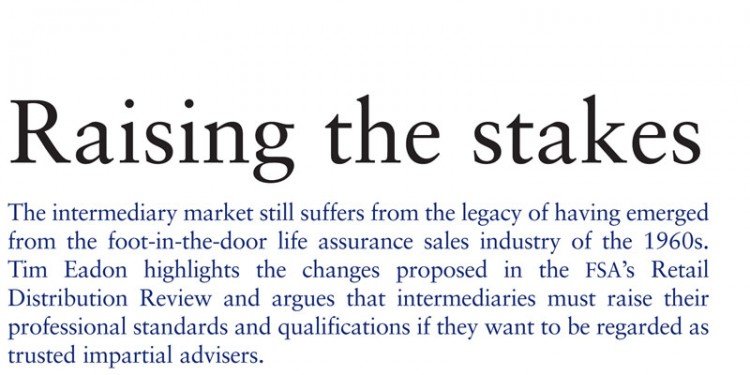The intermediary market still suffers from the legacy of having emerged from the foot-in-the-door life assurance sales industry of the 1960s. Tim Eadon highlights the changes proposed in the FSA’s Retail Distribution Review and argues that intermediaries must raise their professional standards and qualifications if they want to be regarded as trusted impartial advisers.
A “plethora of divergent views” was how one attendee of the Financial Services Authority’s Retail Distribution Review conference described the experience. The debate has begun and the road to success will be a
long and winding one, to paraphrase William Blake. It began last year at Gleneagles when Sir Callum McCarthy, the FSA chairman, referred to the present retail distribution system as “broke” and that its
practices needed to be scrutinised. What the financial services industry must now undertake is a thorough review of the way it is perceived by the public and how its advice can be shaped over the coming decade. The FSA states that the aim is to have a retail market characterised by:
1. Capable and confident consumers
2. Clear, simple and understandable consumer
information
3. Soundly managed, adequately capitalised and TCF
focused firms
It warns that risk-based and principles-based regulation
is jeopardised by:
• Consumers’ low level of financial knowledge and
interest combined with complexity and evolution of
products
• Consequent heavy reliance on advisers who may be
remuneration (rather than customer service) driven
• The long term nature of products which means that problems may take a long time to surface, by which time the original adviser may no longer be in
business
• Costs which deter consumers, arising from regulation and the way firms choose to implement it
• Lack of knowledge on the part of advisers due to inadequate training and testing.
For the full article download the above PDF.

